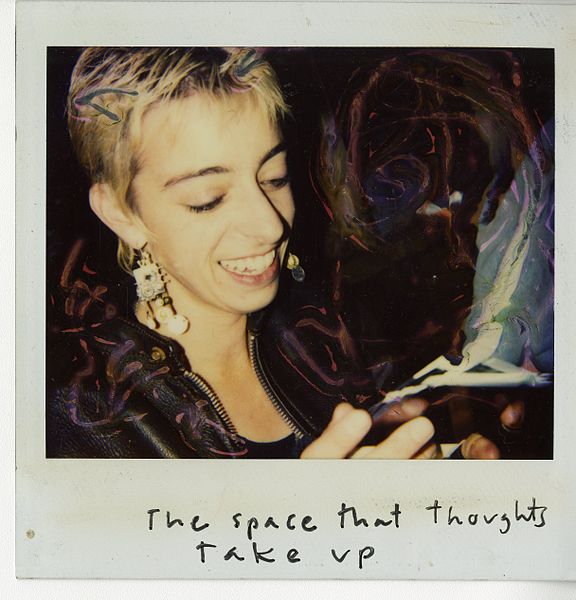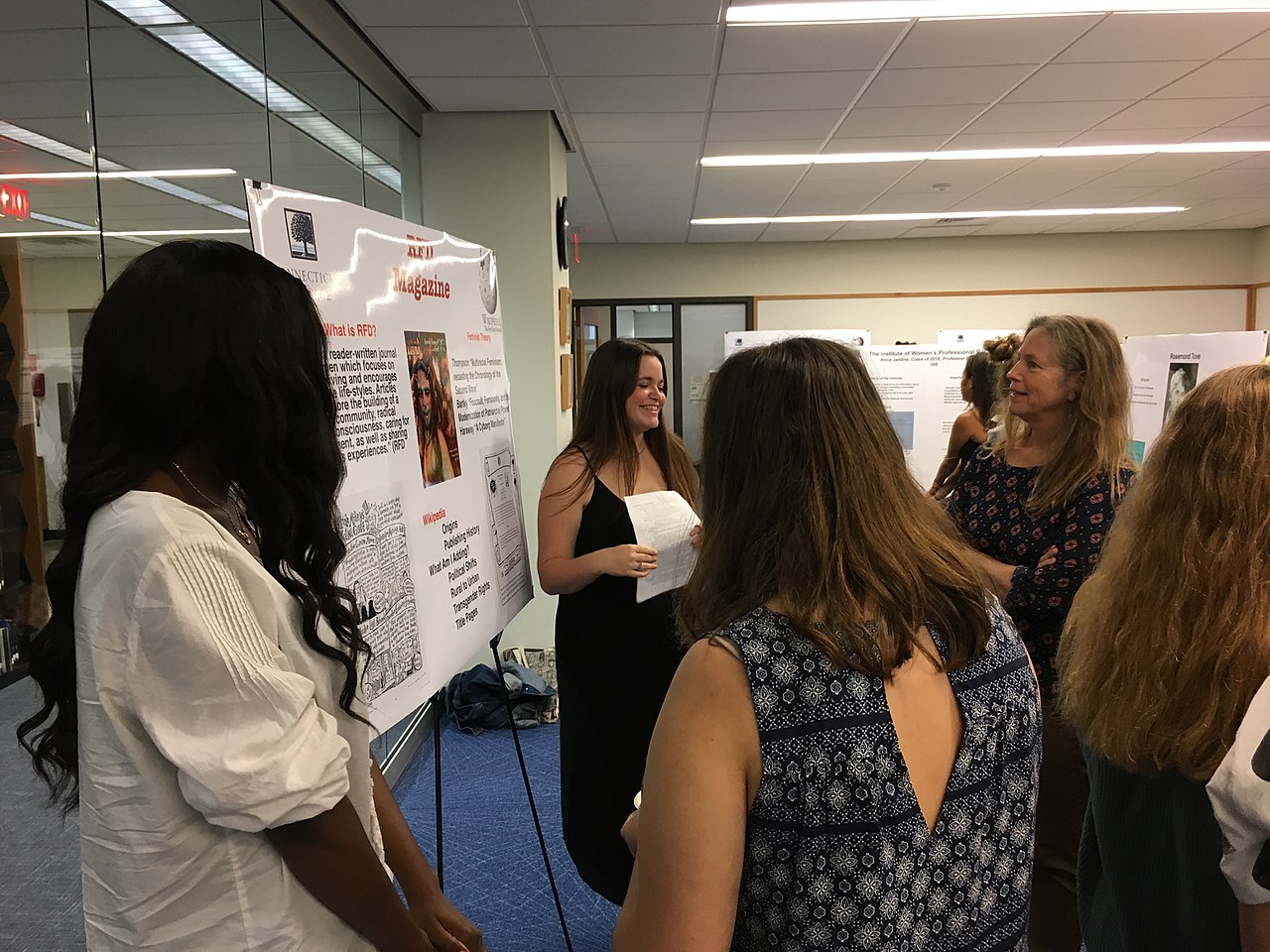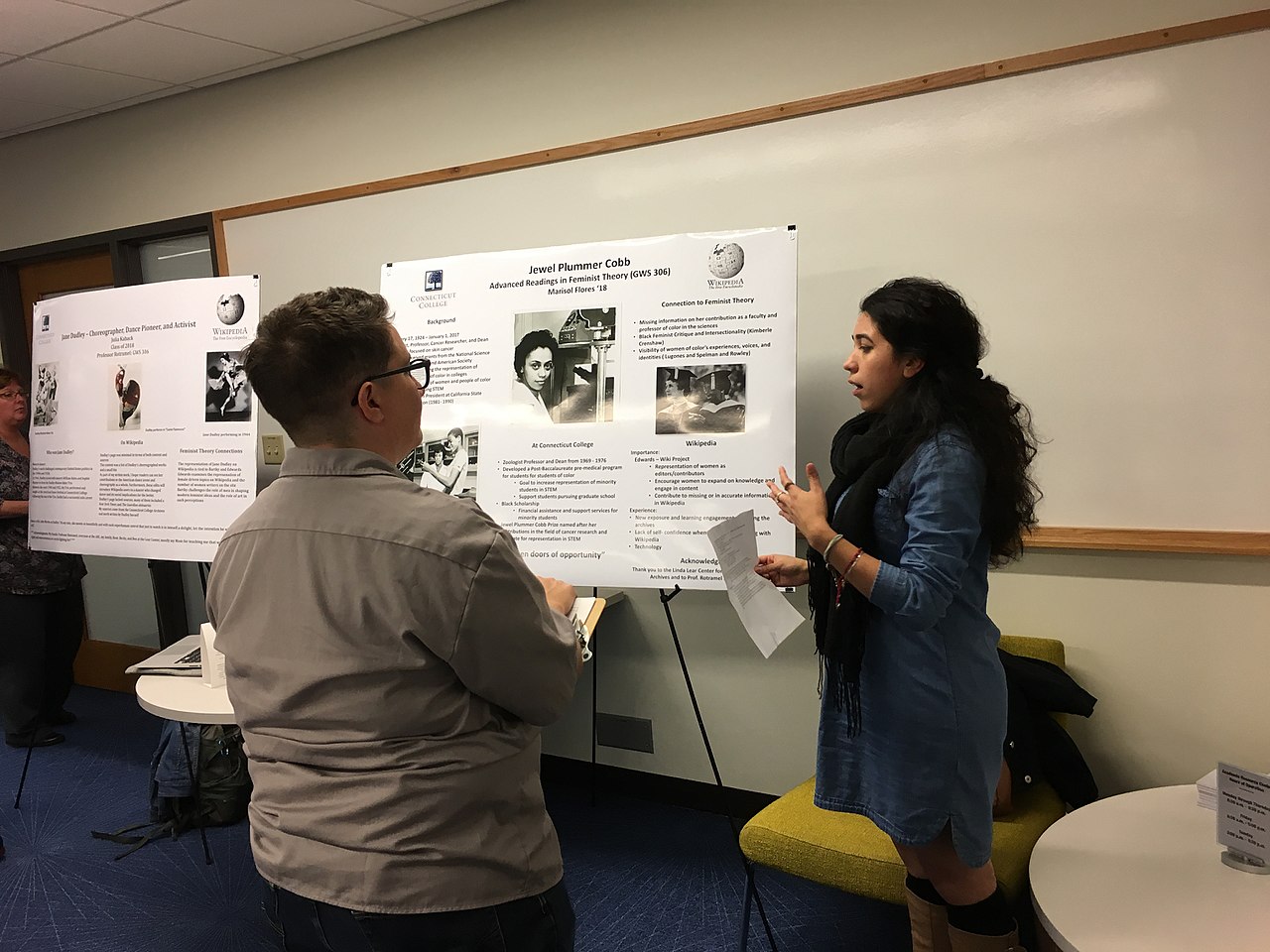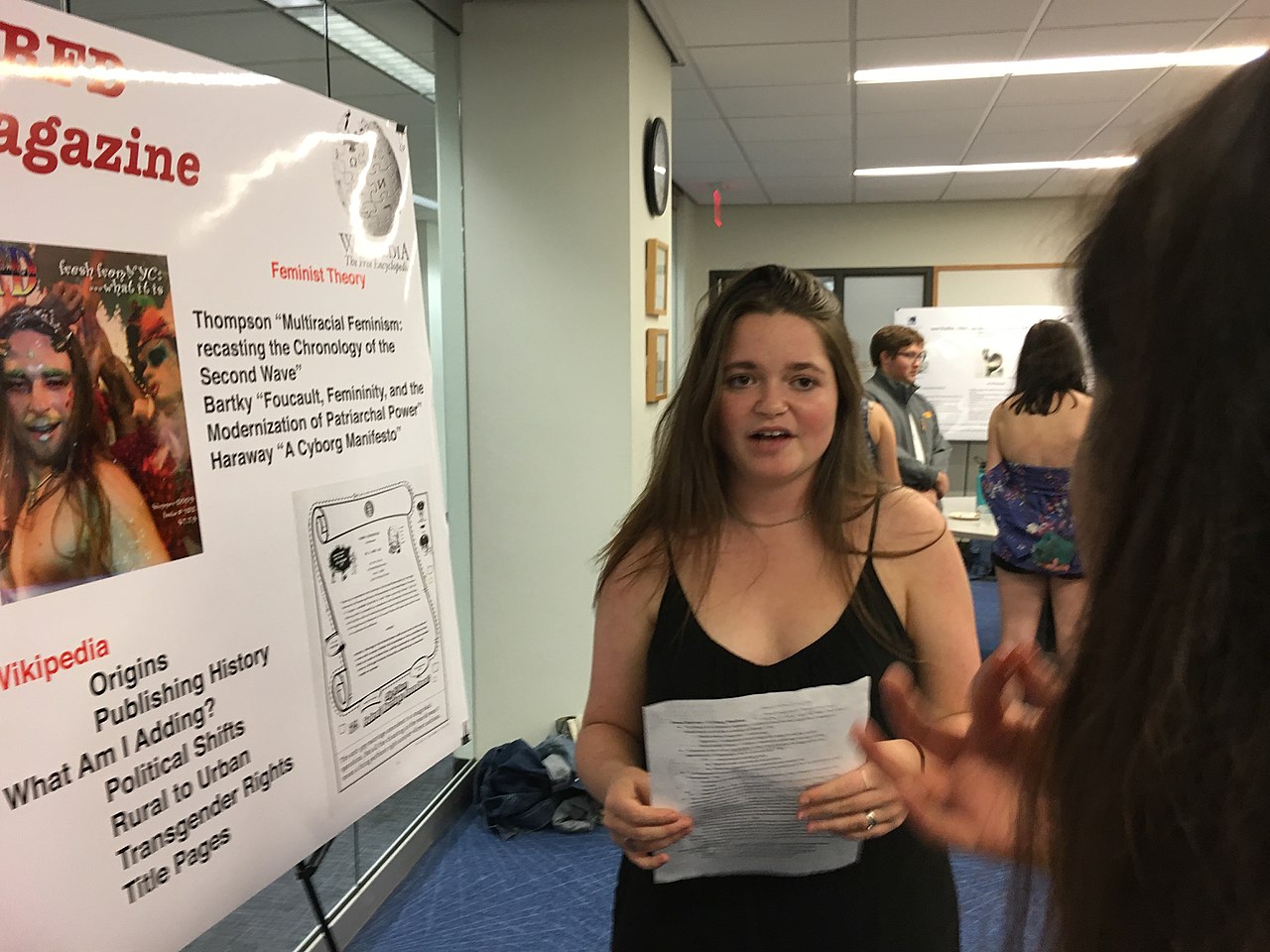Ariella Rotramel is an instructor in our classroom program. Ariella is the Vandana Shiva Assistant Professor of Gender and Women’s Studies at Connecticut College. In a blog post from November 21, re-published here, Ariella reflects on teaching with Wikipedia in the Fall 2017 semester.

Image: File:Coppola2.jpg, by Krimany, CC BY-SA 4.0, via Wikimedia Commons.
This fall I am again working with Wikipedia in my Feminist Theory course (check out: Why You And Your Students Should Work To Improve Wikipedia, Feminist Praxis and Wikipedia in the Classroom, and Adding Voices to Scholarship: Wikipedia Editing). It’s the second time that I’m mixing Wiki Education’s online dashboard with our Linda Lear Center’s archives. This Wikipedia-based assignment continues to be a uniquely engaging for students because they are not only able to contribute to public knowledge, they become Wikipedia editors. They shift from being passive visitors to the Wikipedia site to editors with a working knowledge of the principles and culture of Wikipedia and an ability to add and edit Wikipedia pages.
In this blog post, I want to offer up a few key reasons to consider using Wikipedia in your class:
Ubiquity
As of Friday, November 10, English Wikipedia had 5,491,385 articles and is estimated to be the seventh most popular site in the United States, and the fifth most popular in the world. I have yet to teach a student who has not visited Wikipedia. While there is a longstanding skepticism of the reliability of Wikipedia, students are often unclear about how the encyclopedia works and yet often use it for information. Through a Wikipedia-engaged assignment, faculty can assist students in learning when Wikipedia could be useful and when it is not an appropriate source.
You can do it!
Thanks to Wiki Education’s development of an online dashboard, there is an increasingly easy to use and nicely scaffolded way to plan out an assignment. My dashboard allows me to draw on the trainings provided by Wiki Education to help students learn the basics to Wikipedia as a community, as well as how to edit, conduct research, write an article, and provide substantive feedback to their peers. It also harnesses the transparency of Wikipedia to make it easy to track student work throughout a project. Plus, each class gets connected to a Wikipedia content expert who can provide additional support to students. I have asked my content editors to video chat with students the past two years and that has been helpful for establishing rapport. All in all, while I don’t ever feel like I’m an uber-Wikipedian, I know that I have the basic knowledge needed and when I hit a roadblock, I have the support I need.
Built-in Motivation
Students respond well to the challenge of a Wikipedia assignment because it engages with a public-facing platform. In this case, it’s a site that possibly everyone they know has visited at some point. As a result, they care more about doing high quality work because they have a sense of responsibility towards a public audience. They also look forward to sharing their work with friends and family. Finally, I already have had a student be asked to do Wikipedia work during a junior year internship, and she surprised her placement supervisor by already having this experience.
Student Feedback & Assessment
This fall in their reflection essays, students noted that this assignment allows them to engage with a mainstream audience.
As a student argued:
In 2017, in a climate of extreme political polarization and turmoil, as well as an increasing sense of distrust in news and credible sources, assignments such as the Wikipedia Project are exceptionally valuable, in terms of the content they produce, as well as the online communities they form and support.
Another observed:
Student created content creates a sense of accountability and agency within learning. Producing knowledge is empowering. It gives students a sense of greater purpose within the classroom, creating a conversation in which students can be critical of information and its production. Instead of simply reading about theories about voices being left out and that there is not enough content written by women, I was able to learn transferable skills and add to the voices on Wikipedia that are written about and by women.
Overall, while they noted some limitations of both Wikipedia (an important element to the assignment to develop their understanding of concepts like positivism, objectivity, situated knowledges, and standpoint epistemology) and working with materials from the archives, students reported that this was a particularly compelling assignment unlike a standard research paper.
In regards to assessment, Wiki Education provides suggestions and an assessment rubric that can be repurposed for your own needs.
Interested, but not sure about all this? Drop me a line and I will be happy to meet up to look through the dashboard with you.
Photos by Alphareductaze, CC BY-SA 4.0, via Wikimedia Commons.
For Ariella’s original WordPress post, click here.
For more information about teaching with Wikipedia, visit teach.wikiedu.org.




